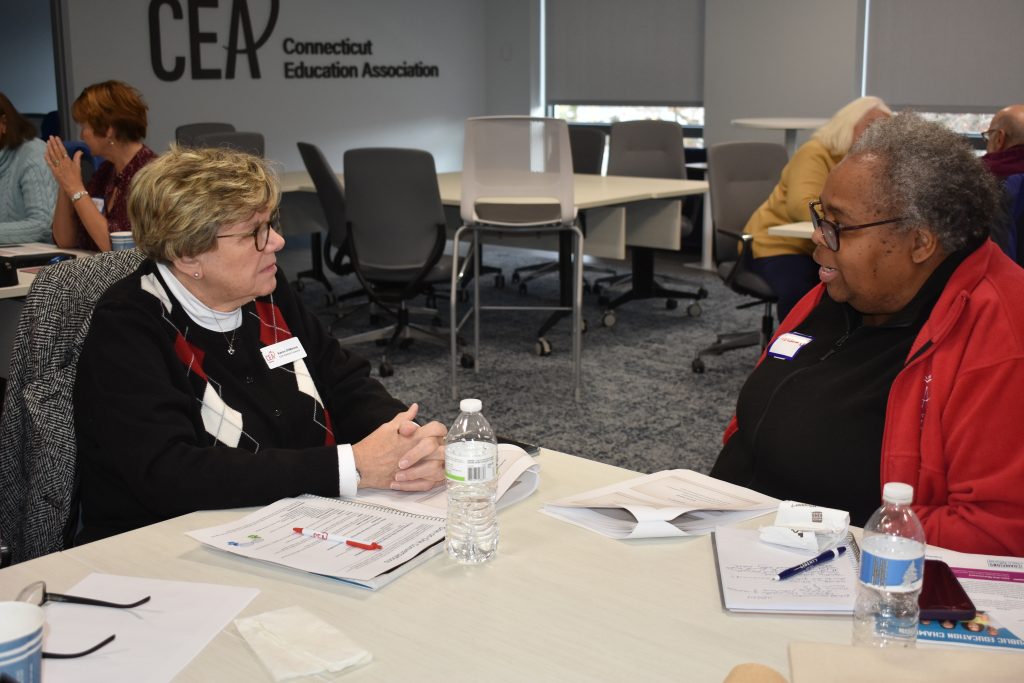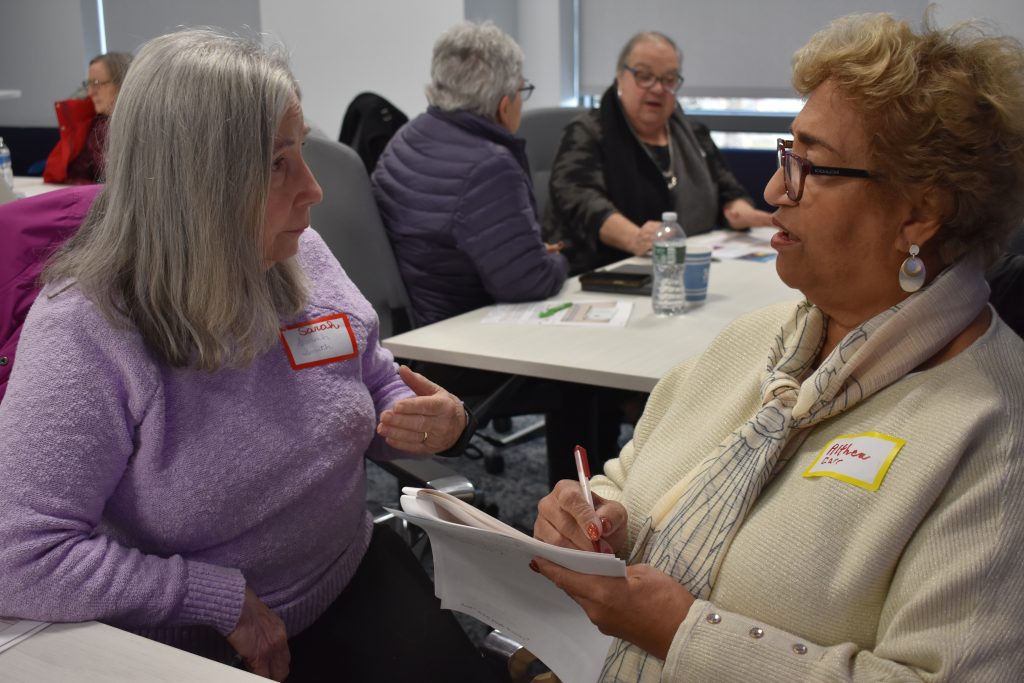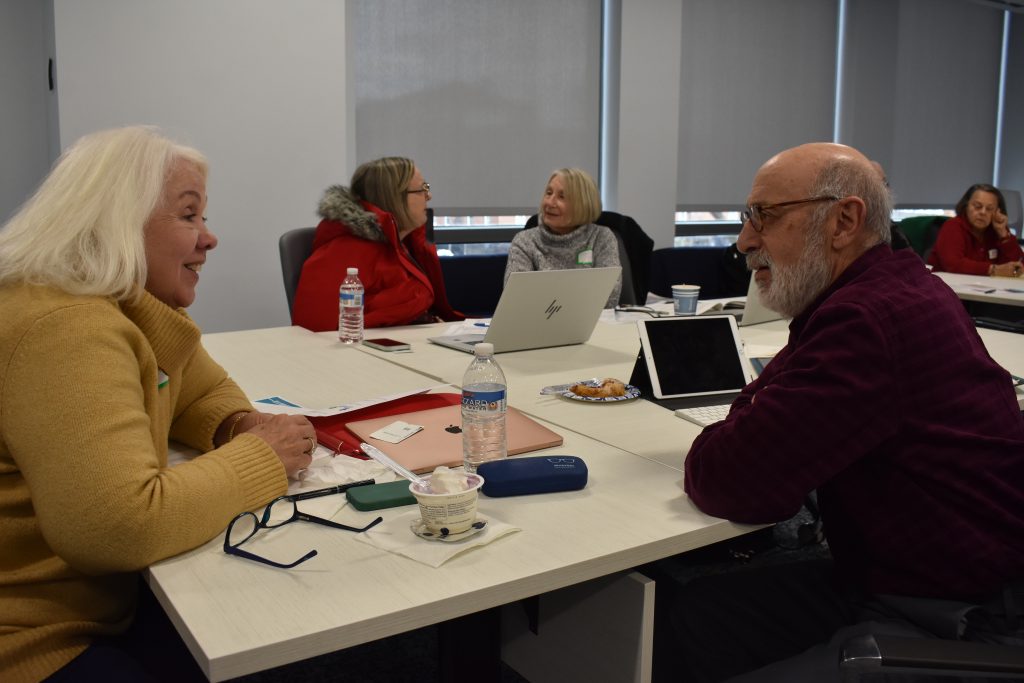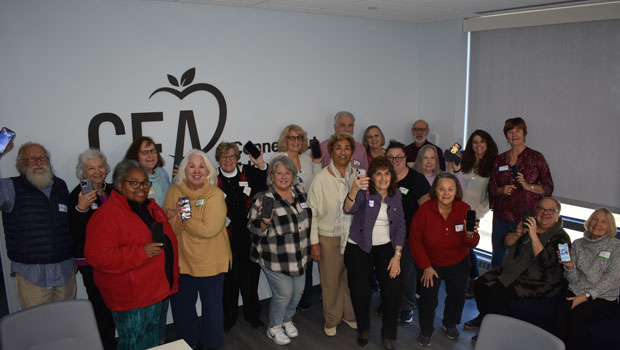As Connecticut’s 2025 legislative session kicks off next month, CEA-Retired is gearing up to play a pivotal role in advocating for teachers and public education. To ensure they succeed, retired educators from across the state met at CEA’s office in Hartford December 3 to form a rapid response team (RRT).
Having led similar efforts in Ohio, CEA Executive Director Todd Jaeck explained that rapid response teams are groups of educators and allies who are proactive and intentional about building power for teachers and bringing about positive change for public education.
“Everyone cares about something,” said Jaeck. “It’s up to us to find out what that is. For some it might be school safety, class size, or school climate. For some it’s fair compensation or fully funded education. You wouldn’t be here if you didn’t believe in and care about public education. Finding out what people are passionate about starts with getting to know them. It’s about building relationships.”
 Jaeck discussed the importance of strengthening collective power across the career continuum, from aspiring to retired educators.
Jaeck discussed the importance of strengthening collective power across the career continuum, from aspiring to retired educators.
“Our goal is to cultivate a network of individuals dedicated to advocating for public education,” he said. “Retired members are vital to this mission not only for their years of experience in the classroom but also their ability to swiftly respond to urgent situations ranging from elections and legislative actions to local union organizing.”
Fingers on the pulse
During RRT training, CEA-Retired members learned about ways of building community and practiced effective one-on-one conversations to identify shared goals. They also downloaded and worked with digital tools to expand their reach.
“CEA has technology that enables widespread peer-to-peer texting and software that helps manage advocacy campaigns,” CEA Political Engagement Coordinator Gus Melita explained, demonstrating for CEA-Retired members how apps on their phones can be used to reach out quickly to peers, allies, lawmakers, and others when time-sensitive action is required.
“There are times when we need to mobilize to get something done quickly, whether that’s voting legislation up or down or getting people to the polls or to a rally,” he said. “Many of the victories we’ve had from the local level all they way up to the halls of Congress received a major assist from our CEA-Retired members who texted, turned out, spoke up, and more.”
 What’s your why?
What’s your why?
CEA-Retired members’ reasons for participating in RRT training spanned a range of issues with a common goal: strengthening Connecticut’s public schools.
“Public education is so important because our children are our future and our legacy, and we want to make sure everyone is educated and has the resources they need,” said Natalie Lynne Smith, who taught in Glastonbury and at CREC over the course of her career.
“I’m concerned about our public schools, because we’re losing teachers as a result of overwhelming stress, an unrealistic pace, student behavioral issues, and more,” said retired Region 10 teacher Pat McGlynn.
Lora Rossomando, who taught in Stamford, added, “There’s also a movement to make teaching formulaic, which goes against creating a community, a classroom where students and teachers feel connected.”
“It’s very hard to teach now, and we’re worried about the shortage of educators,” Peg Wilde agreed.  The retired Vernon teacher said her fears are amplified by threats that the incoming administration wants to do away with the U.S. Department of Education.
The retired Vernon teacher said her fears are amplified by threats that the incoming administration wants to do away with the U.S. Department of Education.
“Public education is the bedrock of our society,” said Mary Kay Rendock, recently retired after 37 years in Bloomfield. “I worry that misinformation, including about the differences between public, private, and charter schools, can have an impact on the funding our public schools so desperately need.”
“Public education promotes equality and equity and creates engaged, intelligent citizens,” said Stratford veteran Lisa Tryon, “and we need them more than ever right now.”
“I’ve always been politically active,” retired Bridgeport educator Kate Lunnie acknowledged. Recently tapped to chair the CEA-Retired Legislative Committee, she said, “I’ve been with CEA’s Legislative Commission and CPAC for many years, and I think it’s important for retirees to continue their involvement with their union. I keep my hand in, and now that I have more time on my hands, I’m making sure I continue to be active in our union work. It’s that important to me, and I love having some skills training to make that happen.”
Interested in joining? Email Elizabeth Sked.







